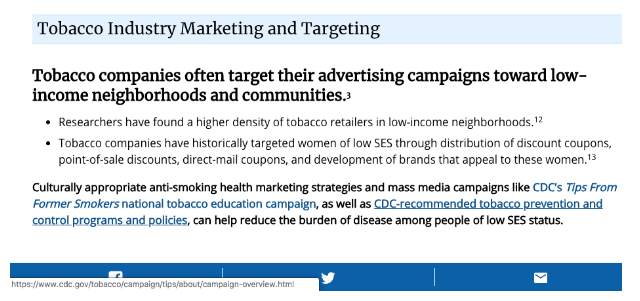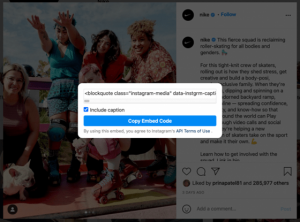— May 29, 2019
Link building is the process of gaining new backlinks to your site through social sharing, content creation, public relations, promotion, and outreach.
The purpose of link building is to improve the reach and footprint of your site by appearing on topically relevant and authoritative sites. This brings traffic from the site where the link that was built, as well as improves your site’s authority by association.
TL;DR: When other websites link to your website, it helps your SEO.
Link building can be as simple as sending a message to a blogger asking them to share a topically-relevant page with their audience, or as complex as building a 100-page guide that gets shared all over social media and industry sites. Let’s take a look at what link building is, some approaches to building quality links, and some pitfalls to avoid.

What is a backlink?
A backlink is a link that exists on another website and leads back to your site. All backlinks (and all links in general) have 4 parts, which help the reader and search engine answer 4 distinct questions:
- Anchor text, the text that is clickable and, hopefully, gives the user some context around what they’re about to click.
- URL, or the destination the visitor will go when the link is clicked, is where you want people to visit.
- Linking Page is the referrer, which describes who is sending you to the URL
- Context is why the link is on this particular page.
Here’s an example, showing all 4 parts of a link, as you would encounter them on a web page.

- The Anchor Text reads “CDC’s Tips From Former Smokers national tobacco education campaign”, which describes what to expect when you click the link.
- The URL of the link is http://www.cdc.gov/tobacco/campaign/tips/about/campaign-overview.html
- The Linking Page is the Tobacco Prevalence Among Low Income Individuals page.
- The Context of the link is that it helps readers find more information on tobacco cessation campaigns, by linking to a more authoritative site on the subject.
The copy and links make sense to the reader, and anyone who clicks any of the links knows what to expect. This page is on a reputable site, linking to another reputable site, is well cited, and has measurable value to both a reader & a search engine, thus tends to perform well in search.
Now, here’s an example of the opposite — low-quality links embedded in spammy text.
The anchor text consists of short, specific keywords, the copy is unintelligible to a human reader, and the URLs all point to the same keyword-heavy domain name. This type of link spam is easily caught by most search engines, and the offending page is typically penalized or simply not included in the index. (That’s bad.)
Why are backlinks important?
Backlinks are considered a “vote of confidence” from one website to another, and pass authority from the referring site to the referred site. Pursue links from other reputable sites, such as newspapers, industry magazines, experts in your field, or other local or industry-specific webpages, and avoid building backlinks on low quality, spammy, or irrelevant sites.
A great backlink profile, with links from a myriad of trusted sites, will drive a site higher on the search engine results page, as search engines use backlink profiles as a way of determining the legitimacy of a website (or page). In short, backlinks tell Google’s algorithms that you’re for real and that you’re putting good content (not garbage) onto the Internet. So it wants to help more people find you.
How should I build links?
There are many different ways to earn and build quality backlinks to your site, so select link building tactics that match with your company goals and available resources. Here are a few suggestions to get you started:
Publish a case study
Explain how you helped a client solve a problem. Reach out to the company right after you publish, and ask them to share it on their blog, social media, or on their site. Most companies would love the opportunity to be featured, and would gladly oblige.
Publish a how-to guide
Teach others how to solve a problem in your industry. Promote it to an audience of people within your industry, and send it to industry bloggers, writers, and journalists.
Find broken links
Ideally, find them on an industry-relevant website, and message the webmaster. Suggest pages from your site instead.
Contribute to industry roundups
Try HARO requests and other requests for professional opinions. Often times, they include a link to your site for readers to find more information.
Be a resource for students
Looking for interns? Have a scholarship? Reach out to local universities and let them know about your program. They’ll be glad to post it in their student resources page.
Find niche / local directories
Submit your site manually. People use all sorts of resources to find new business, and being visible on high-quality and relevant directories will increase your chances of being found.
Appear in every relevant directory
Completely fill out your profiles on various industry sites. Include your link, phone number, descriptions, and any other relevant information. Many people neglect this step, which can be a great opportunity for visibility.
Answer questions on Q&A sites
We love sites like Quora. When people search for a problem they’re having, your answer is there, along with a link to find out more information.
Reach out to influencers
Focus on people discussing a topic in your industry. Many times, they’ll be glad to share your post with their audiences, if the content is worthwhile.
What linkbuilding approaches should I avoid?
Comment spam
Adding your link to the comments section of random sites will do little to help your business, and will hurt it in the long run. While the quantity of links can help a site, quality links do all the heavy lifting work. A link in a featured story from a great news site is worth millions of low-quality comment links. In addition, due to spammers overusing this approach, many comments automatically add no-follow tags to links, preventing them from benefiting your site at all.
Low-quality directories
There are services out there that will add your website to hundreds of directory sites. Most of these are low-quality rarely-visited websites, which do nothing to improve your own website’s visibility. While it may seem like a bargain, your funds would be better spent on:
- Improving your local listings
- Writing better content
- Or even improving your website
Buying links
Buying links can often hurt your business. From the high cost, to the unknown placement, to a possible penalty, there’s very little to gain from purchasing links. In fact, we get asked this question so often, we have an entire post dedicated to why this is a terrible idea for any business.
Using link building software
Most of the link building software on the market simply finds sites with a specific keyword on it, and attempts to add a copied piece of text and a link in the comments. It’s no better than adding your links to random comments, as mentioned above, except with link building software, you can get penalized even faster.
Begging for links
Spamming webmasters or writers by asking them to link to your site is a fruitless, time-wasting activity. Unless you give them a great reason to include your link (content that can help their readers, reporting a bug, fixing a broken link on the site, etc) most will ignore your request, or report your email as spam, making it more difficult to reach out to others in the future. Try making a personal connection with the staff of an organization before you make a request from them.
Who are some link builders to follow?
While this post was meant to serve as a brief introduction to link building rather than an expository guide, there are a lot of great writers and marketers who focus solely on link building, if you are interested in diving deeper into the subject.
Jon Cooper is an SEO and Linkbuilder who runs HyperLynx media, a firm in Gainesville, FL (Go Gators!) that focuses exclusively on link building strategies and approaches. In his podcast, Jon discusses a number of easy to execute link building strategies you can put into place today.
Christoph Cemper is a link researcher, lecturer, and creator of Link Research Tools, a suite of tools designed to help companies make sense of their backlink data
Brian Dean runs an SEO firm focused solely on white-hat link building. He’s quite prolific, appearing often on SearchEngineLand, Moz, and his own popular blog Backlinko, where he frequently publishes long-form content, from lists of ranking factors, to case studies, to new link building strategies.
Dan Petrovic is an Australian SEO and lecturer, who conducts in-depth research into why we link to other websites and the value of organic link building, what he calls “link-earning”.
Digital & Social Articles on Business 2 Community
(63)
Report Post





